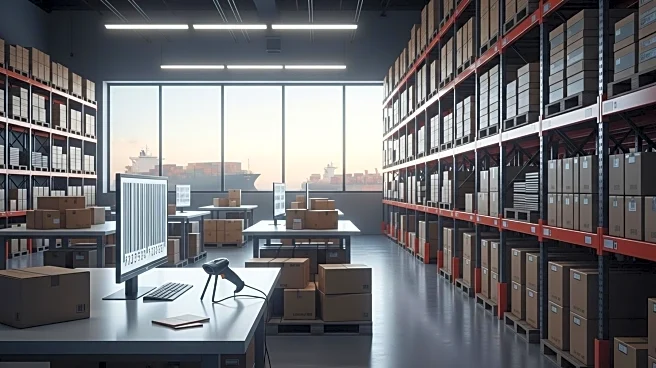What is the story about?
What's Happening?
On August 29, 2025, President Trump's administration terminated the U.S. de minimis tariff exemption, which previously allowed low-value imports under $800 to enter the country duty-free. This move is part of the broader 'America First Trade Policy' aimed at curbing illicit goods, protecting domestic industries, and modernizing customs enforcement. The abrupt end of this exemption has disrupted global supply chains, with postal services like DHL and Royal Mail halting U.S.-bound deliveries to adjust to new documentation requirements. Small and medium-sized enterprises (SMEs) are facing significant financial burdens, with estimated additional costs of $71 billion annually due to tariffs ranging from 10% to 50% and increased compliance overhead.
Why It's Important?
The termination of the de minimis exemption represents a significant shift in global trade dynamics, particularly affecting e-commerce platforms and small businesses that relied on duty-free imports. The policy change is expected to increase operational costs for these businesses, potentially leading to higher consumer prices and reduced competitiveness. However, it also presents opportunities for logistics and customs compliance firms, which are experiencing increased demand for solutions that automate tariff calculations and streamline customs documentation. This shift could drive innovation in logistics technology and compliance software, with firms that adapt to these changes poised for growth.
What's Next?
As businesses adapt to the new tariff landscape, there is likely to be increased investment in compliance technology and logistics solutions. Companies may explore strategies such as U.S.-based fulfillment centers, bulk importing, and nearshoring to mitigate costs. Investors might focus on firms with scalable compliance technology and strong client retention, as the logistics industry shows potential for growth despite short-term challenges. The global customs compliance software market is expected to expand, driven by the need for cloud-based solutions and integration with ERP systems.
Beyond the Headlines
The end of the de minimis rule could lead to long-term shifts in global trade practices, encouraging businesses to innovate in automation and data integration. This regulatory change may also influence international trade policies, as countries reassess their own tariff exemptions and compliance requirements. The focus on protecting domestic industries might spark debates on the balance between national security and global trade cooperation.















